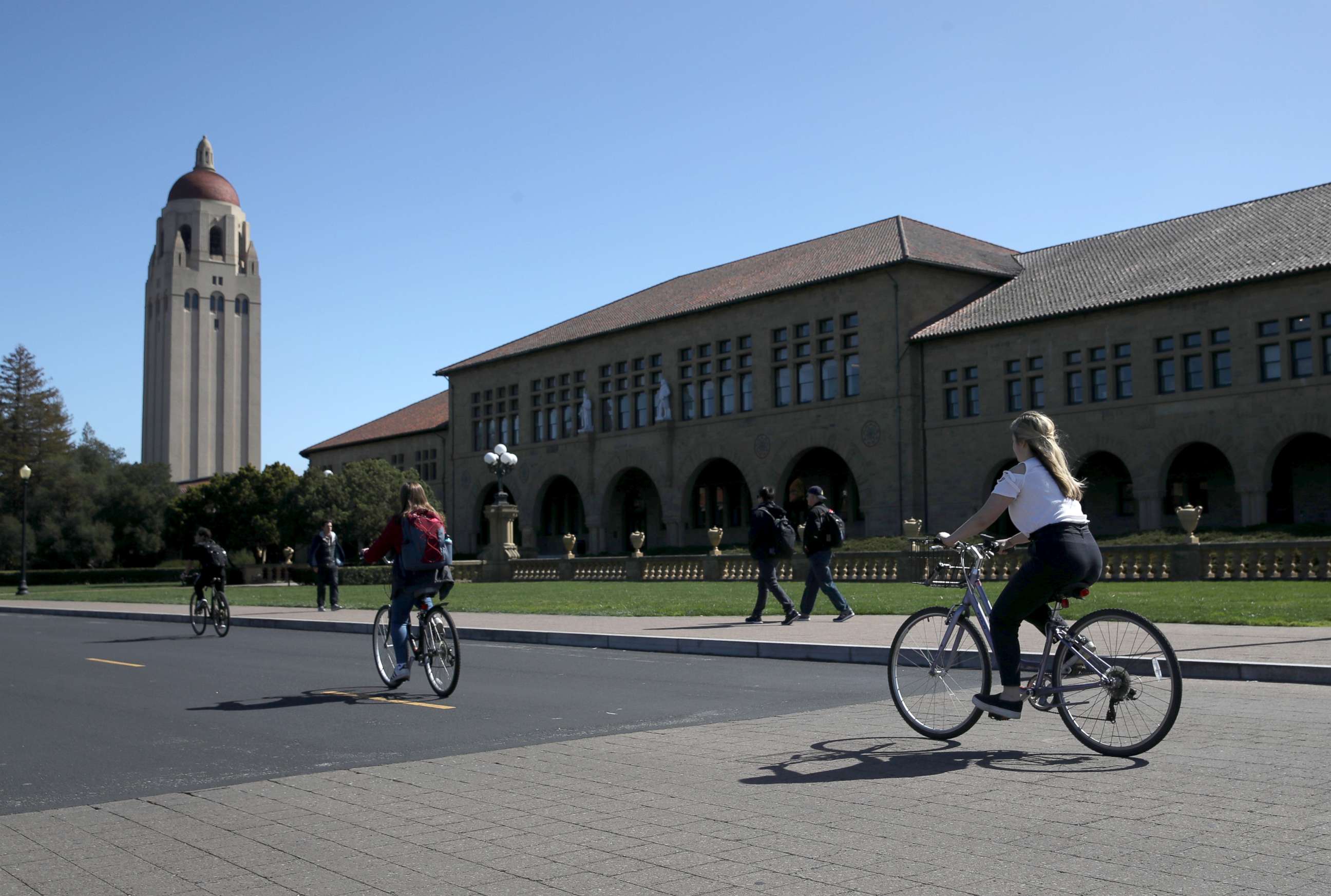Stanford University apologizes for limiting admissions of Jewish students after WWII
The prestigious university long denied the practice, the apology letter states.
Stanford University has apologized for limiting the number of Jewish students admitted after World War II -- a practice the prestigious college had previously denied took place.
The university announced in January that it had created a task force committee to research allegations that in the 1950s there were task force quotas to limit the number of Jewish attendees.
Stanford University President Marc Tessier-Lavigne announced Wednesday that the task force confirmed those assertions that Jewish applicants had been denied following WWII due to that quota.
"The report finds that actions to suppress the admission of Jewish students to Stanford did, in fact, occur in the 1950s, and that the university for years afterward denied that this occurred," Tessier-Lavigne said.

One of the examples included in the report is a 1953 university memo that expressed concern among university administrators about the number of Jewish students being admitted to Stanford.
Soon after, a "sharp drop" in enrollments of students from two Southern California high schools known to have "substantial populations of Jewish students" occurred, according to the report.
The task force used the drop in enrollments from those high schools as evidence that the university "took action to suppress admission of Jewish students," Tessier-Lavigne wrote. When questioned about its practices in later years, the university denied any anti-Jewish bias in admissions.
It is unclear how long the practice lasted or whether it extended to other groups of students or schools, Tessier-Lavigne said, describing it as "appalling antisemitic activity."

However, the practice had long-lasting effects, including dissuading some Jewish students from applying to Stanford in later years, the report found.
Tessier-Lavigne apologized to the Jewish community as well as the university community, both for the actions documented in the report and for the denials that took place afterward.
"This ugly component of Stanford’s history, confirmed by this new report, is saddening and deeply troubling," he said. "As a university, we must acknowledge it and confront it as a part of our history, as repellent as it is, and seek to do better."
Included in the recommendations by the task force are an ongoing advisory committee and additional study of contemporary Jewish life at Stanford, the offering of anti-bias and related trainings, including on antisemitism, the recognizing of Jewish high holidays and accommodations for Jewish students living on campus -- such as expanding on programs like the Glatt Kosher Dining Program.
Tessier-Lavigne emphasized that none of the historical anti-Jewish bias documented by the task force exists in today's admissions process.
"We welcome, and we seek to support, a thriving Jewish community at Stanford as part of our diverse community of students and scholars from all backgrounds," the university president wrote.
The task force chair will share the findings and answer questions during a webinar on Thursday afternoon.



